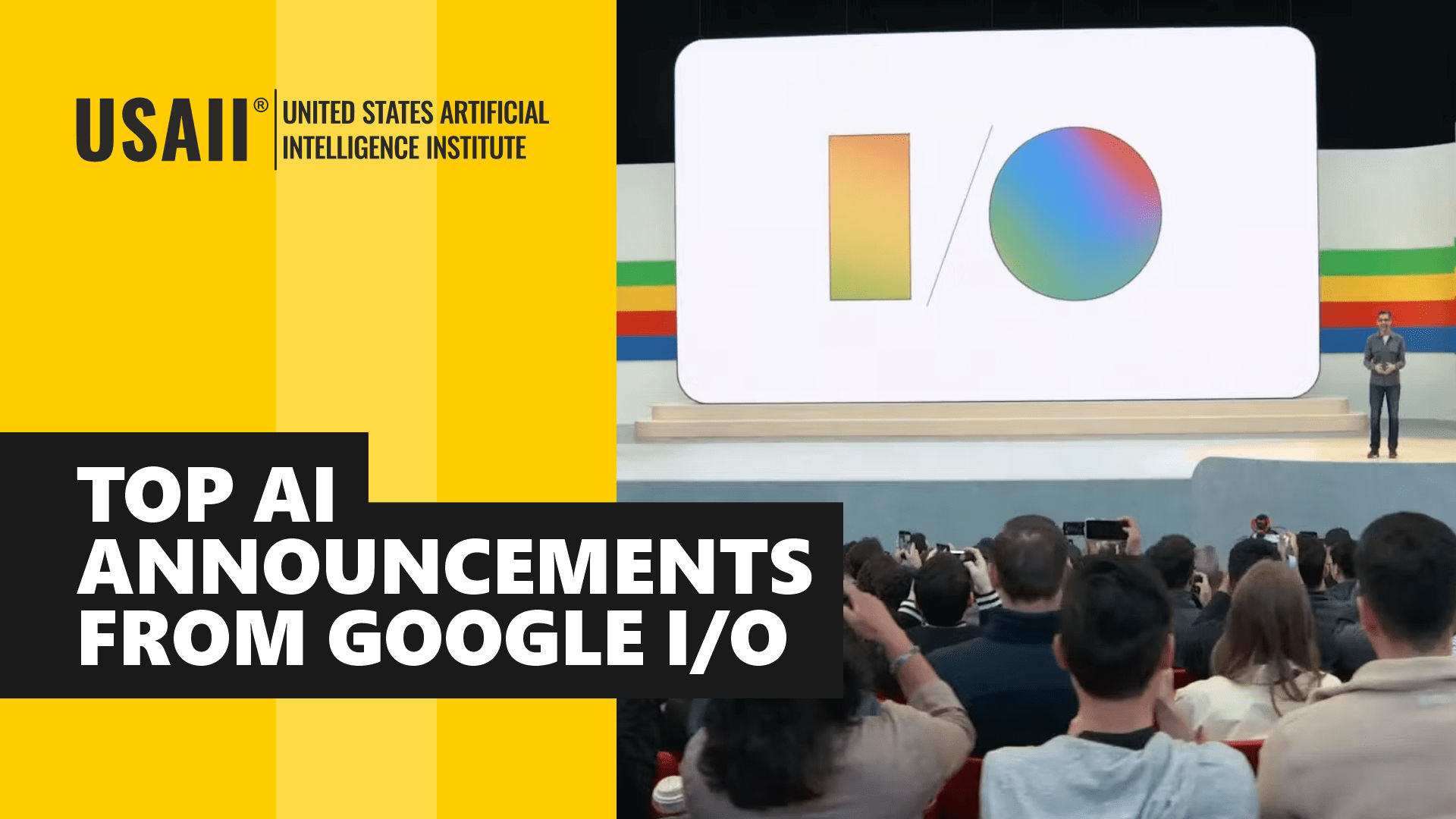
The summers are getting warmer with hot AI announcements! How can Google stay behind? Sundar Pichai and others from Google’s leadership team announced an array of AI-powered revelations from Mountain View, California. With this, Google detailed changes to upcoming versions of Android and Wear OS. Until now, Google Gemini has been impacting the world with its astounding capabilities. As Statista rightly mentions Gemini leaped into the ring of the generative AI market in early 2024 following the rebranding of Bard.

Google kickstarted Gemini I/O 2024 with a slew of announcements and innovations in Artificial intelligence. Anticipations are high as the world pivots toward a greater version of Google presentation. Let us get up close and personal with Google I/O and what it gears to unfold in the realm of massive AI platforms and more.
Google I/O 2024- 20 Big Announcements:
Gemini has traveled the world and is strewn in to take on the most powerful large language model Gemini 1.5 Pro; making itself available for AI developers worldwide. Gemini Nano is in the pipeline, designed for local use for diverse tasks, such as summarization and ‘help me write’ functionality. Going further, Gemini Nano is gearing for a multimodality upgrade for text, images, videos, and audio; and easily run on smartphones.
Google aims to enable AI-powered overviews in search for one billion users before the end of the year. Google is rolling out AI overviews to millions of users through the Search Generative Experience (SGE).
Gemini is replacing Google Assistant as the default AI assistant. Gemini Nano’s multimodal functions will give users an expressive smartphone experience through Android’s ‘Talk Back’ feature.
Google Workspace services such as Gmail, Docs, Slides, and Sheets will now have Google 1.5 Pro as the accompanying LLM, allowing users to have a larger context window and other advanced features.
Google launched the Pixel 8A a week before Google I/O 2024. The smartphone is an anticipated model after the success of the Pixel 8 series. Beyond the smartphones, the developers will have a new Tensor Processing Unit (TPU) to play with by this year’s end.
The feature scans voice calls as they were happening with AI, a client-side scanning. This technology can further be used across ways and be swiftly expanded.
Google stated that if the system is certain about malicious behavior, it disables the app automatically. Otherwise, it alerts the company for a review and then alerts users. Also, to protect devices in the real world, Google announced ‘Theft Detection Lock’ an AI-powered addition that identified motion commonly associated with theft; which follows the phone screen automatically getting locked.
Google worked its Gemini into the Google TV (smart TV) operating system; to generate descriptions for movies and TV shows. The AI-generated descriptions are also personalized based on a viewer’s genre and actor preferences.
Private Space is a new Android feature that allows users to silo a portion of the operating system for sensitive information. The space is available from the launcher and can be locked as a second layer of authentication.
Users of Google Maps can access the Augmented Reality content by first searching for a location in Google Maps. If the location has AR content and the user is nearby; they will have to tap on the image that says ‘AR Experience’ and then lift their phone.
The latest smartwatch operating system, Wear OS 5 focuses on improved battery life and other performance improvements, like more efficient workout tracking. Developers can access updated tools for creating watch faces and new versions of Wear OS tiles and Jetpack Compose for building watch apps.
Developers'dream comes true as Google comes up with Gemma 2 by adding a new 27-billion parameter model; which shall be launched in June 2024. Its size is optimized by Nvidia, to run on next-generation GPU and can run efficiently on a single TPU host and vertex AI.
Launch of an experimental feature ‘Ask Photos’- The new add-on allows users to search across their Google Photos collection using Natural language queries that leverage an AI’s comprehension of their photo’s content and other metadata.
Gemini in Email, Gemini 1.5 Pro, Gemini Live, Gemini Nano, Gemini on Android, Gemini on, and Google Maps have seen an evolution of add-ons streaming massive beneficiaries to the league.
AI-powered ‘Circle-to-Search’ feature allows Android users to get instant answers using gestures like circling; to solve complex problems across psychics and mathematical word problems. Actions such as circling, highlighting, scribbling, or tapping anywhere on the phone shall enable the command.
The new ‘Web’ filter appears at the top of the results page and enables users to filter for text links the way they filter for images, videos, news, or shopping.
Google’s next-gen AI-centric browser-based development environment, is now in open data.
Google is out with ‘Veo’- a text-to-video generator that can create 1080p videos longer than a minute. Veo draws Google’s expertise from its work on the Lumiere model and Imagen-Video. Veo is available for select creators as a private preview within VideoFX.
What the World Awaits?
Reading an exhaustive offering list that this diaspora of events has led to; the AI community worldwide expects even more strengthened AI nerves. With AI experts leveraging impressive AI tools and AI models; you are sure to experience a world full of AI opportunities and massive comfort. We can’t wait any longer to experience the above in the real world. Just log in to the world of Google I/O, sit back, and relax!
Follow us: